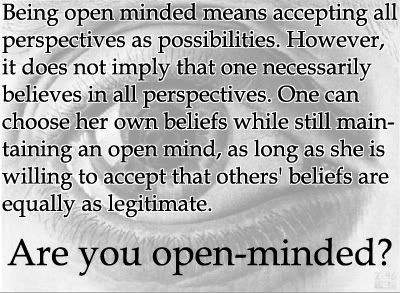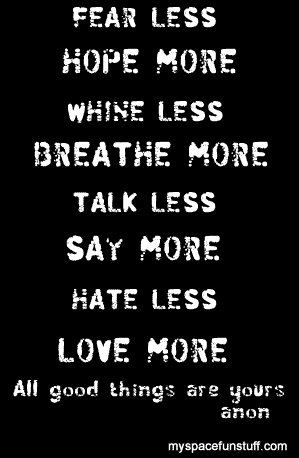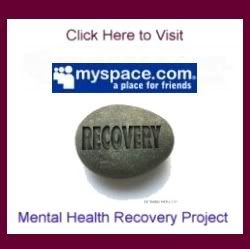Unfortunately, due to that necessary evil called "managed health care," getting treatment for mental health issues basically goes like this:
"You've got a disease. Take your pills. Stop thinking like that. Pay the receptionist on your way out. Who's next?"
Remember, I'm a therapist, so I see this first hand. It happens because mental health issues are considered an "illness" whose only form of "legitimate" treatment is in a "medical-based" system.
The "pros" to this is that we can receive treatment and get it paid by insurance. The "cons" is that treatment focuses on symptoms, not strengths.
When you go to your doctor with flu-like symptoms, he/she gives you a prescription and sends you on your way. Doctors don't discuss your lifestyle, trying to figure out what you do right so they can encourage you to keep doing those things to prevent getting the flu again.
They can't, cuz insurance companies pay "decreased rates" (that the insurance co. decides, not the Doc.) So in order to make any money at all, Doctors need to see as many patients as possible, which leaves little time for you.
Now mental health therapy is the same way since insurance also covers it. So you probably won't be encouraged to focus on strengths in your therapy sessions cuz your therapist NEEDS to address your symptoms.
Why? Cuz if therapists don't do this and you end up in crisis, it's their job on the line (i.e. more money to malpractice insurance companies and lawyers, and less for the people who have devoted their lives to helping people - or so they thought).
In short, the system sucks, which was my reason for starting MHRP.
If you truly want to recover from your mental health issues, you are the one who's going to have to do the work. In other words, you can't rely on your Dr., therapist, or a pill to make you feel better.
And you're already doing it. By visiting this site, you're proving you're attracted to the word "recovery." You're thinking it and believing it. And you're willing to try to get better, despite the limited care you receive from the system.
For that, I am truly grateful.









1 comment:
Hi,
it was because we were hearing many comments like this that we decided to commission a paper outlining the different approaches to care. The paper - 'Care planning processes: from managed care to self directed care' outlines a range of approaches with links to practical examples. It's part of the Recovery Online Toolkit and is designed to be useful to consumers, carers and service providers.
It's free to download at http://www.auseinet.com/toolkit/rec_plans.php. Hope it's useful...
Joy Sims,
Information Officer,
Australian Network for Promotion, Prevention and Early Intervention for Mental Health.
Post a Comment